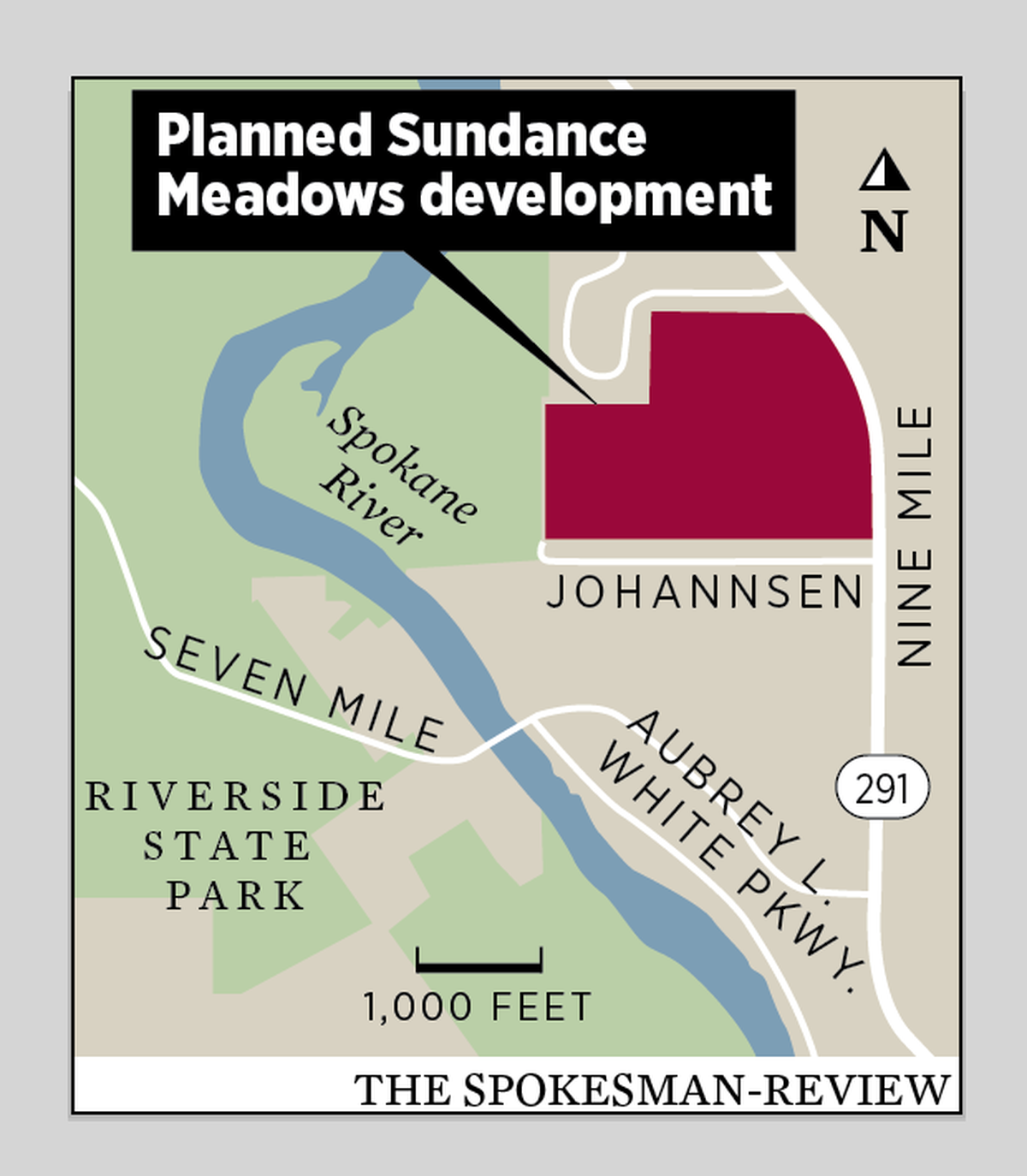Sundance development in Nine Mile Falls wins key approval

A proposed 475-home development at the former Sun Dance Golf Course has cleared a major regulatory hurdle.
Despite neighborhood opposition, the county’s hearing examiner approved Sundance Meadows LLC’s application this week for a preliminary plat.
The ruling essentially is a key green light necessary for the development to begin, but it still must meet several conditions.
The “Sundance Meadows” plan calls for a division of the 88-acre former 18-hole golf course into lots for 475 single-family homes on state Highway 291, or Nine Mile Road. When complete, it’s expected to be home to more than 1,000 residents in Nine Mile Falls.
Spokane County Hearing Examiner David Hubert ruled that the development is consistent with the county’s comprehensive plan and zoning code. His decision can be appealed in Spokane County Superior Court within 21 days, but will otherwise stand.
“We’re happy with the decision,” said Todd Whipple, president of Whipple Engineering, which is helping design the development. “We still have a lot of work to do.”
Whipple said the “heavy lifting” of the development begins after the hearing examiner’s decision.
“This is when all of the engineering kind of starts,” Whipple said.
Although many in Spokane County have called for an increase in housing supply to help offset surging prices, opponents to the Sundance development expressed myriad concerns about its potential impact on the area.
“Although not unexpected, it is still disappointing because it is yet another example of county government bending over backwards to accommodate the wishes of the land development industry at the expense of the quality of life of residents and the paving over of valuable open space and arable farmland,” opponent Chrys Ostrander of the Spokane Farmland Preservation Working Group wrote in an email to The Spokesman-Review.
The fight against the proposal was organized under a group called Shape Our Highway 291. Holly Higens, a neighbor to the project and member of the group, argued that the hearing process was unfair and that the developer had failed to prove it had adequately tested the property for arsenic. It’s unclear if the group will appeal the examiner’s decision, but Higens said “we’re frustrated.”
“We don’t feel as taxpayers we should have to hire an attorney, pay a lot of money and appeal something when people haven’t done their work,” Higens said.
The list of objections opponents aired was lengthy, as they fought residential development of an open green space and feared the impact it would have on the landscape, traffic and local schools. Others have worried that the soil could be contaminated due to chemicals used in treatment of the former golf course grounds.
Hubert wrote in his decision that they had only speculated about possible contamination, and “failed to provide any evidence that the chemicals that they fear are actually found in the soil of the former golf course.”
In permitting documents, the developer estimated that the new homes would generate about 5,500 additional vehicle trips on Nine Mile Road every day.
The subdivision will have 5.37 housing units per acre.
With those factors in mind, a number of conditions will be placed on the Sundance Meadows development. It must fund construction of a roundabout at the intersection of Seven Mile and Nine Mile roads, and improvement work at the intersections of Nine Mile Road and Francis Avenue, Driscoll Boulevard and Assembly Street.
The developer also will have to build out a shared-use path along Nine Mile Road.
The area will hook into the city of Spokane’s sewer system, and it must construct a lift station to do so.